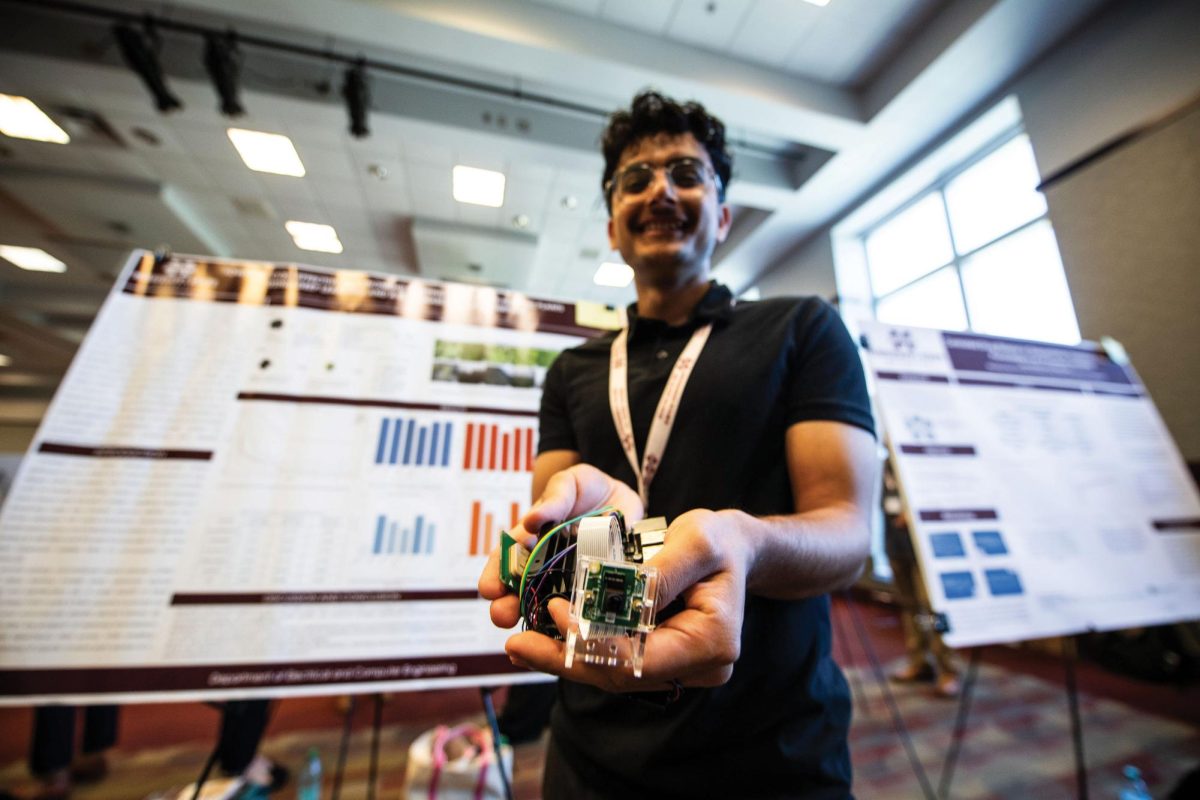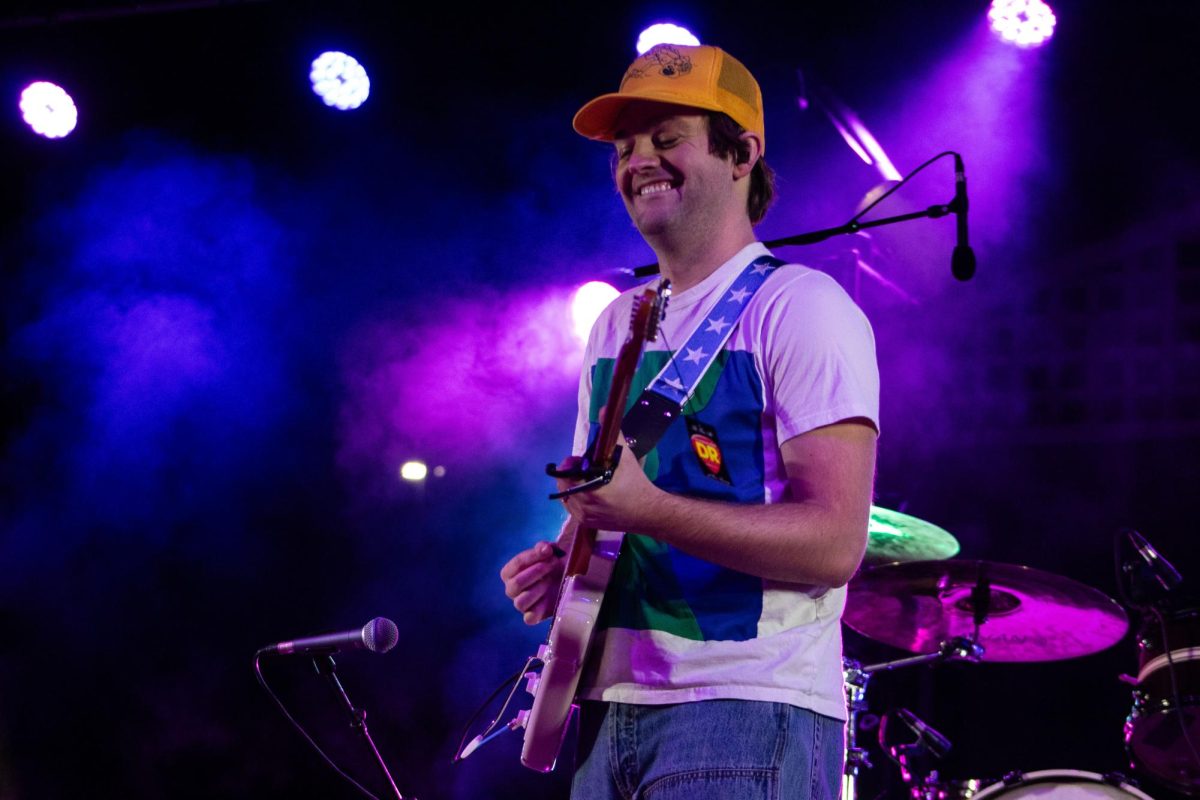Tyler Gall has big post-graduation plans of settling down, getting married, having a family, starting a church and most importantly, living independently.
Gall is a freshman student and part of the ACCESS program here at Mississippi State University, and as a result, his big dreams are more likely to turn into reality.
“I’ve learned a lot. I’ve learned how to interact with people. I had a lot of different schools I was looking at, but I chose here because God put me here and it’s a great place,” Gall said. “My favorite thing about the ACCESS program is meeting friends. When I get out of college, I want to get married, have family, live independently. Hopefully start a church. I’m trying to get out there. I want to be a pastor. I also want to be an equipment manager for the football team.”
ACCESS stands for academics, campus life, community involvement, employment opportunities, socialization, and self-awareness, all of which are taught to the students included in the program.
Elizabeth Williams and her staff work daily to ensure these students get the same opportunities and college experience as any other college student.
“The ACCESS program is a transitional program for students who want to learn how to live independently, but they have some kind of development delay and didn’t meet the academic requirements to be accepted into college,” Williams said. “This program is for the students that would have otherwise fell through the cracks; however, they have full ability to flourish on a college campus.”
Walking into the basement floor of Montgomery Hall on a typical Monday afternoon, one will find a student going to meet up with friends, other students making their schedules for the week, and a few others meeting with their mentors.
Through the program, students are integrated into normal college life at MSU. They attend community events and eat meals in the Union and other cafeterias. Classes are provided for them and held in the ACCESS area of the basement to learn about basic life skills covering things dealt with in daily routines such as figuring out how much money one needs to put in a vending machine, or how much they need to tip a waiter. The students are also required to take at least one MSU cataloged class a semester as well.
“There are not many programs like this around the nation,” Williams said. “Right now, there are about 275 programs in the entire nation, which if you think about how many universities are in the entire nation, that’s a very small percentage.”
There have been four graduates from the program since it began in 2010, and many students such as Daniel Mooney have thrived. Mooney graduated last year and currently lives in the Starkville area.
“He is the perfect example of that kid that would have fallen through the cracks,” Williams said. “He watched all of his brothers go away to college and he started to see all of his younger siblings go to college, and his heart was broken. He asked his parents when he was going, and they didn’t have an answer for him. Then, they found out about this and he came here and they had no idea if this would even really work or not.”
He currently has a part- time job, exercises daily, and attends most all community events. The S.M.A.R.T. buses and Starkville transportation services help him get around town on his own.
ACCESS is very different from many of the other programs across the nation because it is a four-year program and students live in the residential halls on campus. In order to receive the ACCESS certificate earned at the end of their four years, they must complete many requirements and meet all expectations.
“It is not a degree earning program, but it is a certificate program,” Williams said. “Under this certificate, the students are required to take 12 hours every semester and pass their classes. They are also required to have internships during their time here and include all of their experience on their student portfolio.”
The ACCESS program staff works toward getting the students the best experience, credibility, and opportunities to help them thrive in their future careers after graduation. They partner with Mississippi’s vocational rehabilitation services to search for the best-fit job for each student.
Williams emphasized the significance of individuality in the program, and everything from classes to possible occupations depends on the student and his or her interests and capability.
She admitted that there are definitely a few setbacks when helping the student find the perfect job, and she elaborates on the impact the employer has on the student’s entire future.
“One of the things I actually told one of the employers that is looking to hire on of my students currently is that you will influence this student’s life, but you have no idea the influence you will have on his future employer because you will hopefully be making that phone call to that future employer and telling him or her to not judge the book by its cover,” Williams said.
Last year the program started to incorporate mentors to make the program more diverse and fulfill different areas of interest and necessity that the staff workers could not do on their own.
According to Williams, the idea started when one of the students, Joe Silvera, had an interest in art; however, none of the student workers or staff were interested in art, so they began to take applications for student mentors. They had a total of 10 mentors last year, and this year, the number has drastically grown to approximately 60.
Williams is amazed everyday by the progress of the students in the program.
“Sometimes I won’t even realize it until I get a teary phone call from a parent that says they thought this wouldn’t have happened until the next year and that they can’t believe what they are seeing,” Williams said. “It’s also really cool when we hold meetings where the student workers and all of our staff sit together and talk about the progress we’ve seen, and we are all just jumping up and down about something.”
Because of the program’s success, admission is becoming increasingly competitive, but its recognition also gives the program the chance to reach many more special needs individuals with a bright future.
Tyler Gall, pictured above, is a freshman ACCESS student who has many plans for post-graduation life.









